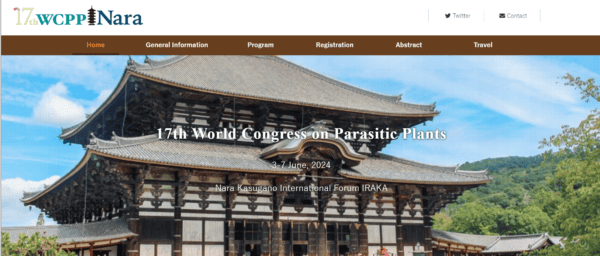
The IPPS and the WCPP2024 local organizing committee offer two types of travel grants for outstanding PhD students and early-career researchers.
- IPPS fellowship grant:
Six travel grants of 1,000 Euro (approx. 160,000 JPY) and waiver of the registration fee will be granted to early carrier scientists (PhD students or Post-docs). These grants are prioritized for applicants coming from low- and middle-income countries (list compiled by the OECD).
Application Deadline: February 29, 2024
Application Procedure: Register for the WCPP2024 and send your abstract to wcpp2024grant@gmail.com. Please include your name, affiliation, and position in the application e-mail. The abstract template is available from the Abstract submission page at the WCPP2024 website (that you can access after registration). The results will be announced to the applicants by e-mail in the first half of March. You can postpone your registration fee payment until you know the results of the IPPS fellowship grant. - WCPP2024 travel grant:
100,000 JPY (approx. 600 Euro) contribution to travel costs will be granted to several outstanding early carrier scientists (PhD students or Post-docs), or scientists from developing countries.
Application Deadline: March 31 (Sun), 2024
Application Procedure: Register for WCPP2024, pay the registration fee (not refundable and mandatory for the application), and submit your abstract using the abstract submission form on the WCPP2024 website. Check the radio box on the abstract submission form and enter the reason why you need a travel grant. The results of the grant selection will be announced to the applicants around early May.
WCPP2024 travel grants will not be awarded to people who won the IPPS fellowship grant above.
The WCPPs are a series of biennial meetings with a long tradition, providing opportunities to exchange information and discuss new discoveries among experts of parasitic plants. WCPP17 will cover a wide range of topics of parasitic plants research, including strigolactone biology, molecular mechanisms, genome evolution and management technologies. The scientific program will include cutting edge research and exciting reports on various aspects of plant parasitism on a range of different plant species, presented as oral presentations or posters. The program will also include social events, such as visiting the ancient city of Nara and enjoying Japanese cuisine. We are looking forward to meeting researchers from all over the world and exciting discussion.
Local organizing committee
Satoko Yoshida, Atsushi Okazawa, Kaori Yoneyama, Tadao Asami, Yukihiro Sugimoto, Koichi Yoneyama, Ken Shirasu, Koh Aoki, Takahito Nomura, Yuichiro Tsuchiya, Yoshiya Seto, Shinsaku Ito, Hidemitsu Nakamura, Xiaonan Xie, Shoko Inaba, Mina Ohtsu
Venue
Nara, the first capital of Japan from 710 to 784, is home to numerous historical shrines and temples containing national treasures. Nara has three UNESCO World Heritage sites registered in 1998 and the central Nara city is listed as “Historic Monuments of Ancient Nara” that includes eight individual cultural assets. The congress will take place at Nara Kasugano International Forum IRAKA (http://www.i-ra-ka.jp/en/) located in the center of Nara National Park, known for its stunning beauty and friendly population over a thousand tame deer. Todaiji temple, Kofukuji temple and Kasuga Taisha shrine are walking distance from the forum. The main hall of WCPP17 will be a Noh theatre made for traditional Japanese dance-drama performance. The forum features a reception hall for lunch and dinners as well as poster sessions. Various ranges of hotel options are available in the Nara area for your accommodations during the congress.
